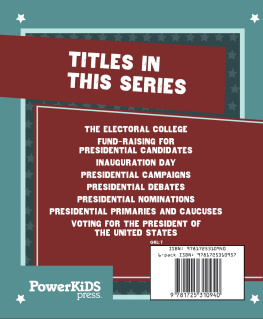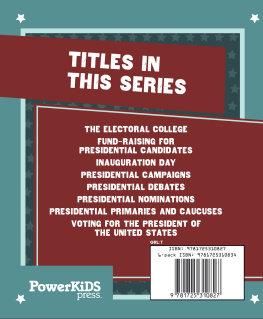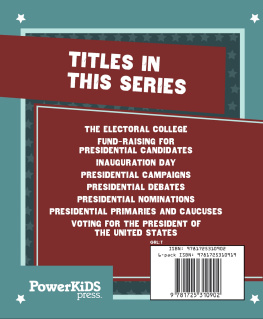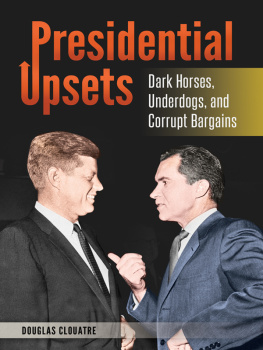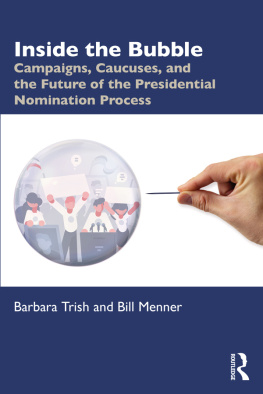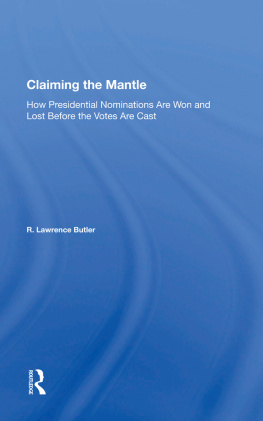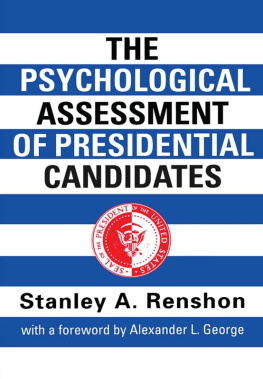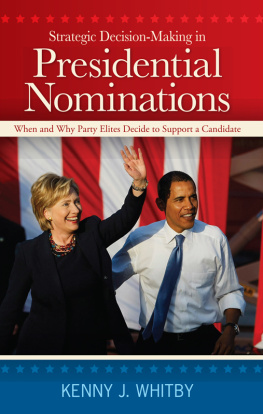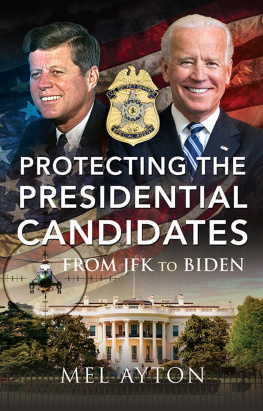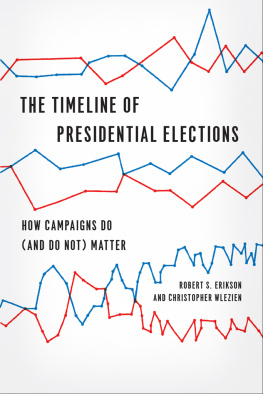
Published in 2020 by The Rosen Publishing Group, Inc.
29 East 21st Street, New York, NY 10010
Copyright 2020 by The Rosen Publishing Group, Inc.
All rights reserved. No part of this book may be reproduced in any form without permission in writing from the publisher, except by a reviewer.
First Edition
Editor: Rachel Gintner
Book Design: Tanya Dellaccio
Photo Credits: Cover Bloomberg/Getty Images; p. Hulton Archive/Archive Photos/Getty Images.
Cataloging-in-Publication Data
Names: Haynes, Danielle.
Title: Presidential nominations / Danielle Haynes.
Description: New York: PowerKids Press, 2020. | Series: U.S. presidential elections: how they work | Includes glossary and index.
Identifiers: ISBN 9781725310940 (pbk.) | ISBN 9781725310964 (library bound) | ISBN 9781725310957 (6 pack)
Subjects: LCSH: Presidents--United States--Nomination--Juvenile literature. | Presidents--United States--Election--History--Juvenile literature. | Presidential candidates--United States--History--Juvenile literature. | United States--Politics and government--Juvenile literature. Classification: LCC JK521.H374 2020 | DDC 324.27315--dc23
Manufactured in the United States of America
CPSIA Compliance Information: Batch #CWPK20. For Further Information contact Rosen Publishing, New York, New York at 1-800-237-9932.
CONTENTS
WHY WE NOMINATE
Every four years, Americans go to the polls to elect a new president. They do so by picking their favorite candidate on a list of names called a . Usually, there are only a few presidential candidates on each states ballot, one from each major partyDemocratic and Republicanand sometimes independent or smaller party candidates.
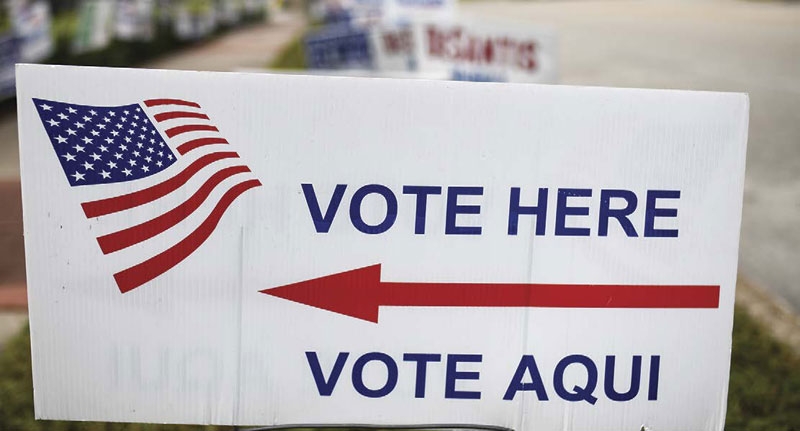
PATH TO THE PRESIDENCY
PRESIDENTIAL ELECTIONS ARE SPLIT INTO TWO PARTSFIRST, THE PRIMARY SEASON, THEN, THE GENERAL ELECTION. PRIMARY SEASON IS WHEN THE POLITICAL PARTIES HOLD PRIMARY ELECTIONS AND CAUCUSES TO DETERMINE WHICH CANDIDATES RECEIVE NOMINATIONS.
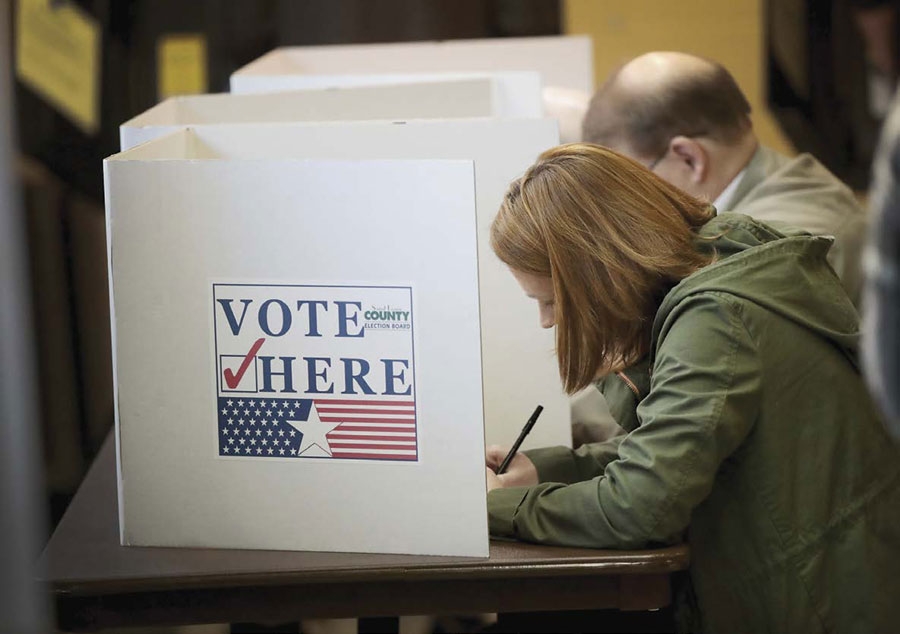
Americans may head to the polls twice for presidential electionsonce during primary season and a second time for the general election.
But imagine if everyone who wanted to run for president was listed on the ballot. There would be dozens if not hundredsof names, making it harder for voters to decide who to support and increasing the chances that no one candidate wins a majority of the vote.
This is one of the reasons why the United States uses a nomination process to narrow the field of candidates down to just a few people on Election Day.
ON THE BALLOT
In most states, there are very specific requirements a presidential candidate must fulfill in order to appear on the ballot in the general election. Candidates can do the following:
The candidate can run as the nominee of a major political party recognized by the state.
The candidate can run as an independent, which usually requires the individual get a certain number of to qualify.
Voters can write in a candidate of their choosing on the ballot, but only if the candidate registers with the state first.
Other than the first U.S. president, George Washington, every U.S. head of state has been the nominee of a major political party. This makes the nomination process a very important part of how we elect presidents.
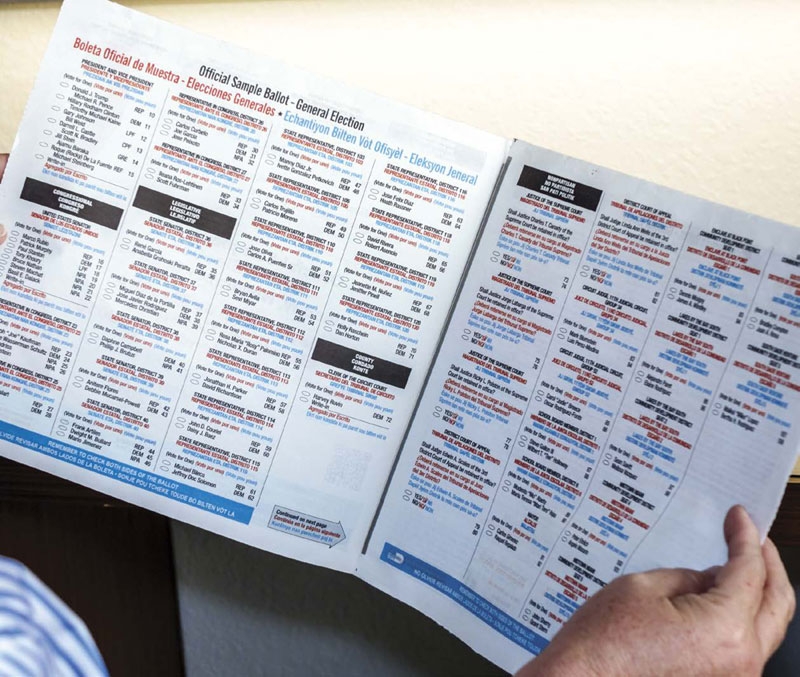
Every four years, Americans vote for a new president, but the ballot includes several other races for Congress, local office, or state office. These are called downticket or downballot races.
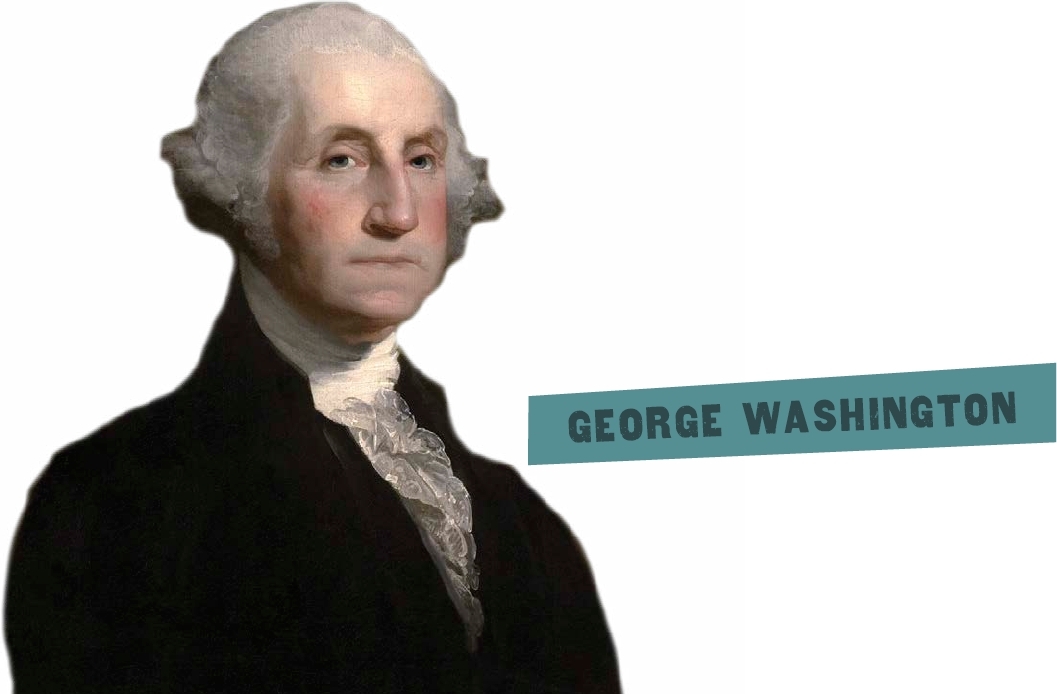
EARLY NOMINATIONS
In the nations early days, members of Congress who belonged to the different parties decided which candidate to nominate for president. Some people disagreed with this process, because the Constitution says the legislative branch (Congress) and the executive branch (the president) must be separate. This problem was illustrated in 1812, when lawmakers in Congress said President James Madison had to declare war on Great Britain if he wanted to be nominated for a second term in office.
The of the congressional nomination process in the 1824 election led to changes. That year, no candidate won the majority of votes, so the House of Representatives picked John Quincy Adams to be presidenteven though he had fewer votes than Andrew Jackson. The next election would be different, with the introduction of primaries!
PATH TO THE PRESIDENCY
THERE ARE THREE BRANCHES OF GOVERNMENT: THE EXECUTIVE (PRESIDENT), THE LEGISLATIVE (CONGRESS), AND JUDICIAL (THE COURTS). THE U.S. CONSTITUTION SAYS THESE BRANCHES MUST BE KEPT SEPARATE TO MAKE SURE NO ONE GROUP HAS TOO MUCH POWER.
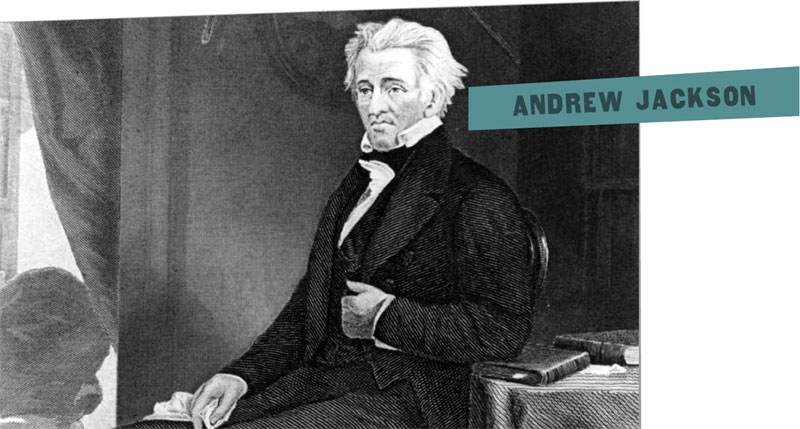
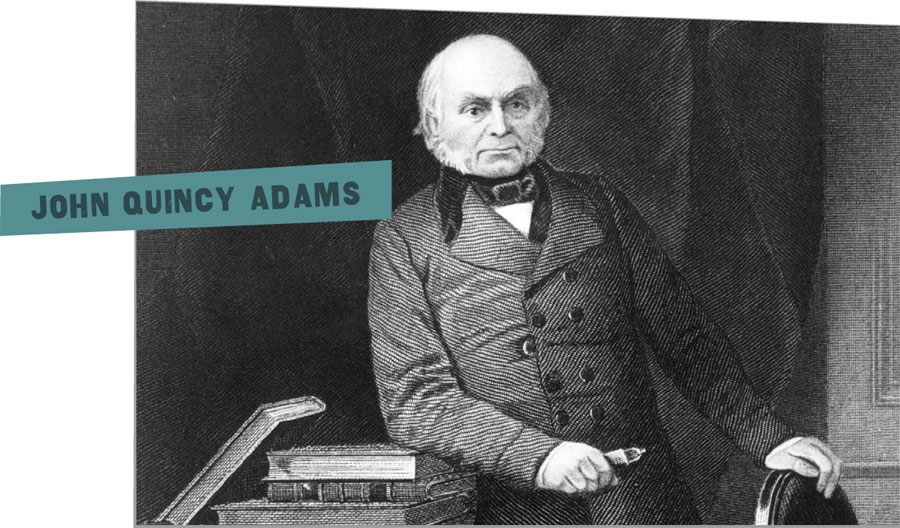
Even though Andrew Jackson won the most votes in the 1824 election, because there was no majority, the House of Representatives picked John Quincy Adams to be president.
BIG ANNOUNCEMENT
In current times, the nomination process is very different, because Congress is less involved and the American voters have a bigger role. The first step in the process is that an individual has to announce their candidacy. They make a big announcement on TV or online, and they register with the political party that fits most closely with their views. Politicians who dont want be a part of a party can run as independents.
Candidates usually announce plans to run for president about a year and a half before Election Day. This gives them time to raise money for their campaign and tell voters what they stand for.
After announcing their run for the presidency, candidates start campaigning and traveling all over the country to get as much support as possible.
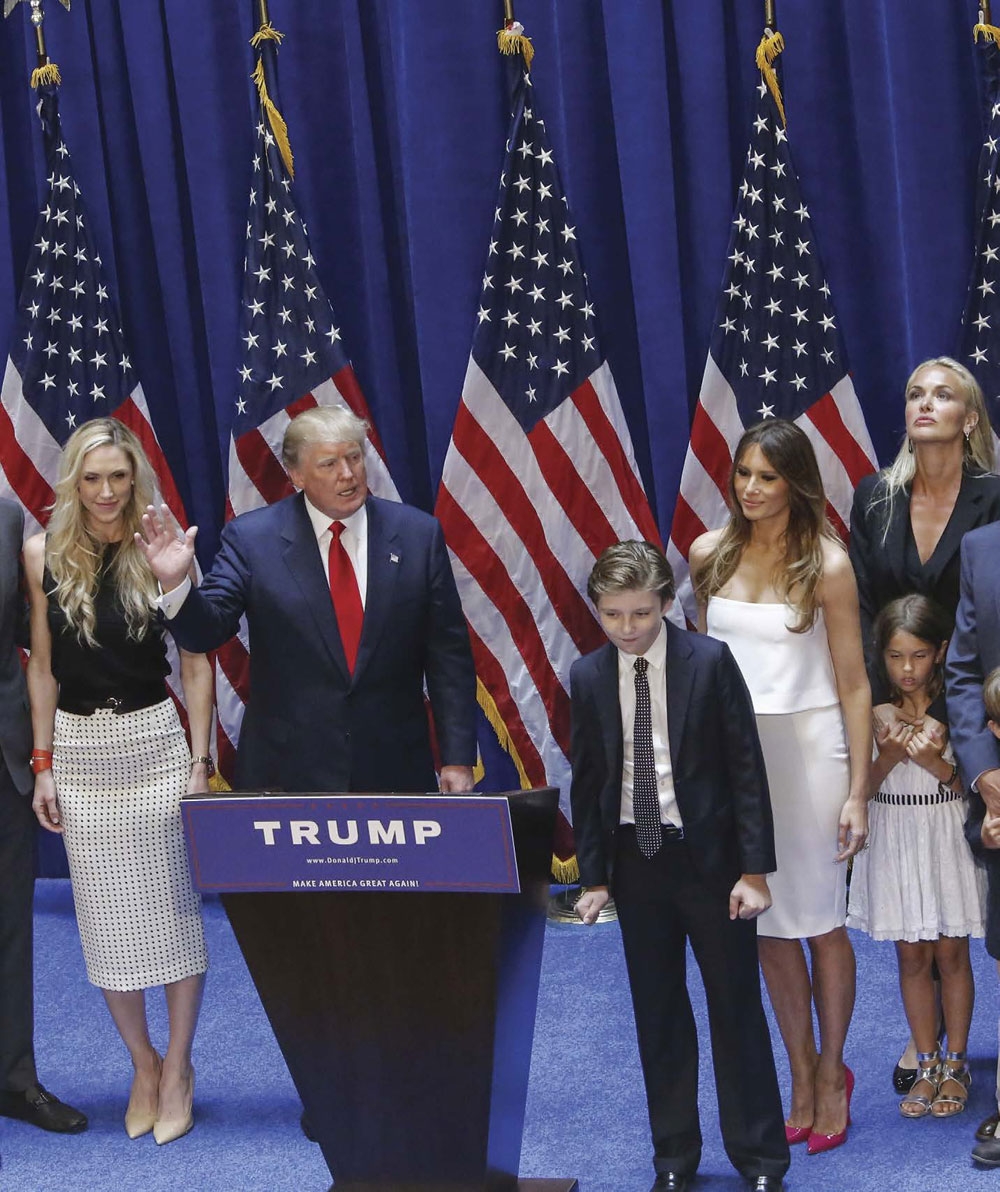
Donald Trump, who became the 45th president, announced his candidacy in a speech at Trump Tower alongside his family.
PATH TO THE PRESIDENCY
IN ORDER TO RUN FOR PRESIDENT, A CANDIDATE MUST BE A NATURAL-BORN CITIZEN OF THE UNITED STATES, MUST BE AT LEAST 35 YEARS OLD, AND MUST HAVE BEEN A RESIDENT OF THE UNITED STATES FOR AT LEAST 14 YEARS.
HOW MANY CANDIDATES?
Theres no limit to the number of people who can run for the presidential nomination of a political party. By spring 2019, more than 20 Democrats had announced their campaigns to seek their partys nomination! Many will drop out as they run out of money to campaign or fail to gather enough support to win the nomination.
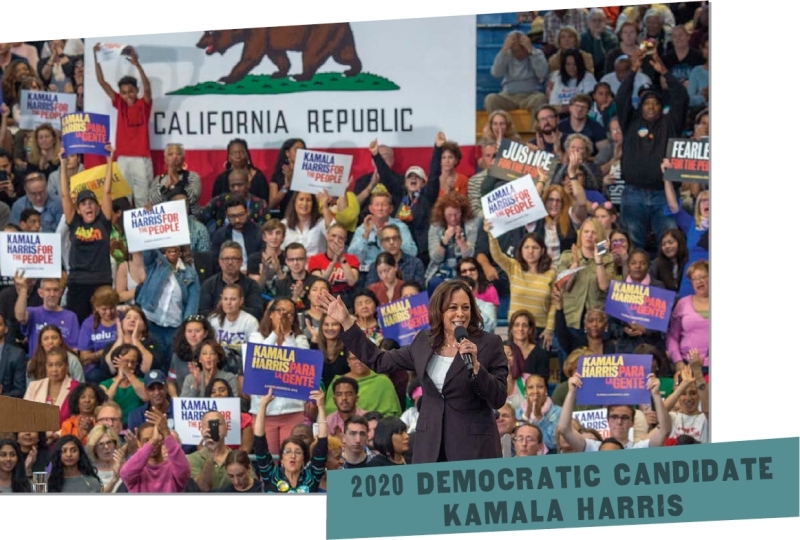
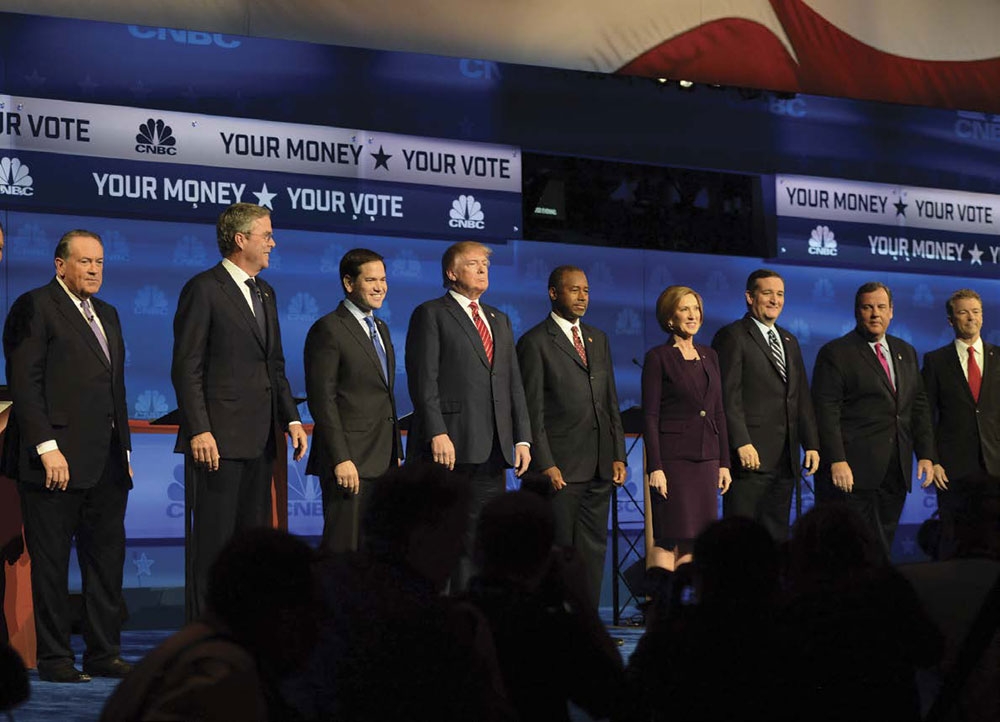
Next page
